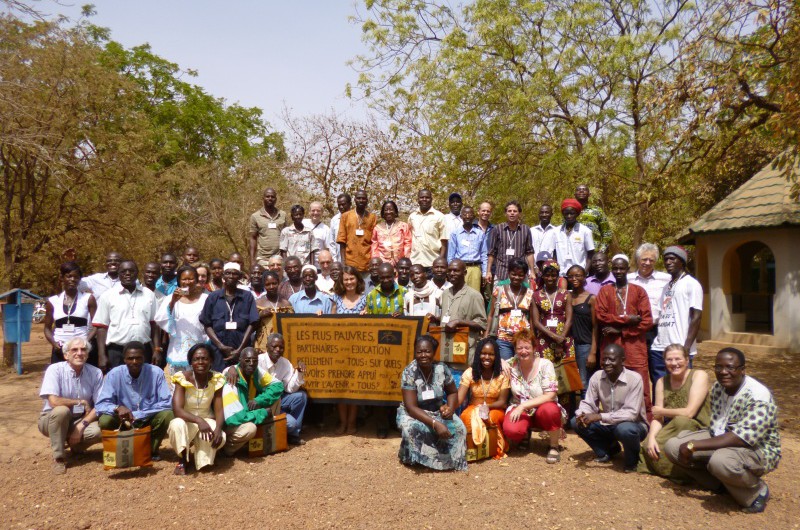People in extreme poverty, partners to reach true education for all.

Project News
People with an experience of extreme poverty, together with academics and representatives from international NGOs and institutions, got together to discuss educational success, and how to reach it, during a six-day seminar. The seminar was held in Ouagadougou, Burkina Faso, at the beginning of March.
This seminar took place within the framework of ATD Fourth World’s Millennium Development Goals (MDGs) evaluation project. Proposals are being prepared for a final seminar in New York, in June 2013, in order to contribute to the post-2015 development framework to be set up after the MDGs deadline.
Need to conciliate traditional and modern education
65 delegates from Belgium, Burkina Faso, Central African Republic, Ethiopia, France, Great Britain, Mali and Senegal summarised educational success as “being useful to yourself, your family, your community, and society as a whole”. They agreed that there is a need to conciliate traditional know-how and experience with modern knowledge. Modern knowledge, furthermore, needs to also be built on practical know-how and life skills.
Professional practitioners from the educational system said that it is their ambition for school to be the concern of all the community, and for the community to be the concern of all the school. It would appear, however, from contributions of participants, that modern education goes against traditional education, in Burkina Faso and other countries in Africa. As one father remarked: Children who go to school do not want to work in the fields any more, they are trained for office jobs. But there aren’t enough office jobs for them all, so what should we do?
Achieving educational success
In order to achieve educational success, there is a need for contributions from different people, and a need for dialogue between the different people involved – between the pupils, their parents, the teachers, and the community.
Factors that curtail educational success include, among others, absence of a birth certificate; hunger; sickness; overloaded classes. Also and above all, it is the discrimination and humiliation suffered by the most vulnerable children that does not allow them to achieve success in school. Some participants explained how some teachers or pupils laughed at children because their parents do not have the means to buy them a proper bag, or because the parent’s job is not considered fitting.
Participants agreed that “Even in extreme poverty, a person has ideas. If these ideas aren’t recognised, people fall even deeper into poverty”. They will be working together to adapt the educational system, in their communities, so as to reach out to those most at the margins.

